Odette Aftermath Snapshot: The Island’s Source of Life
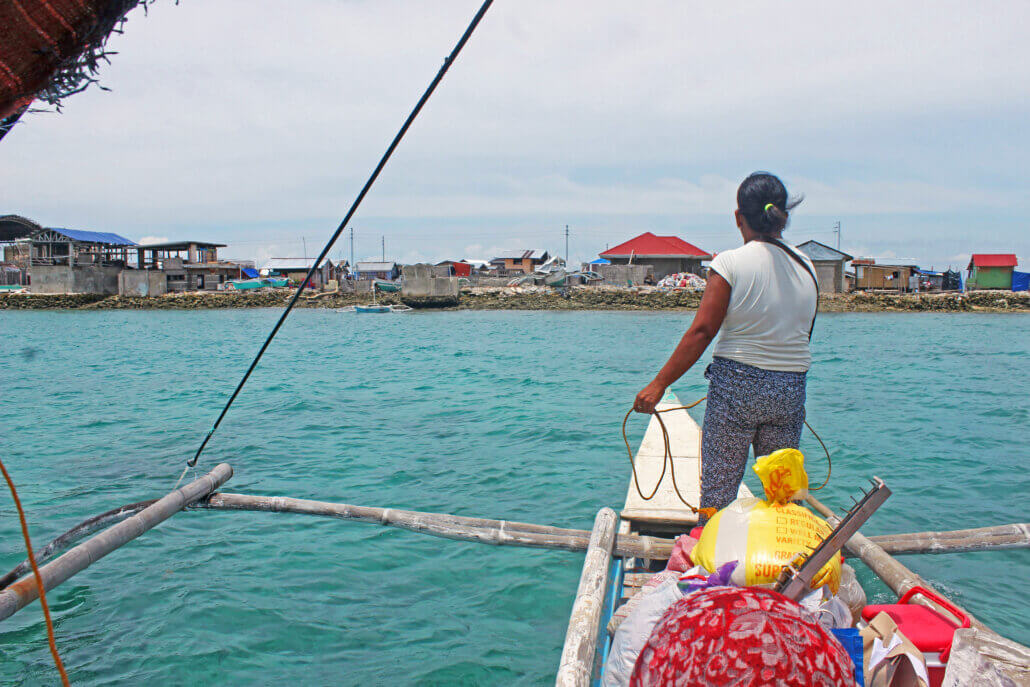
The island of Ubay can be reached through a 30-minute fuel-powered boat ride from the port of Tubigon. Residents pay 50 pesos for a two-way ride from and to the island.
Ubay, a small island in the town of Tubigon in Bohol, was one of the most devastated communities after the onslaught of Supertyphoon Odette (internationally known as Typhoon Rai). Most of the houses were totally damaged by the typhoon that hit the province in December 2021.
The residents of Ubay are families who depend on the sea to survive. Most of the people on the island are fisherfolks. Unfortunately, it was also the sea that destroyed the island when Typhoon Odette rampaged the province of Bohol. Aside from losing their homes and livelihoods, the disaster also took the lives of two vulnerable members of the community—a newborn baby and an elderly woman.
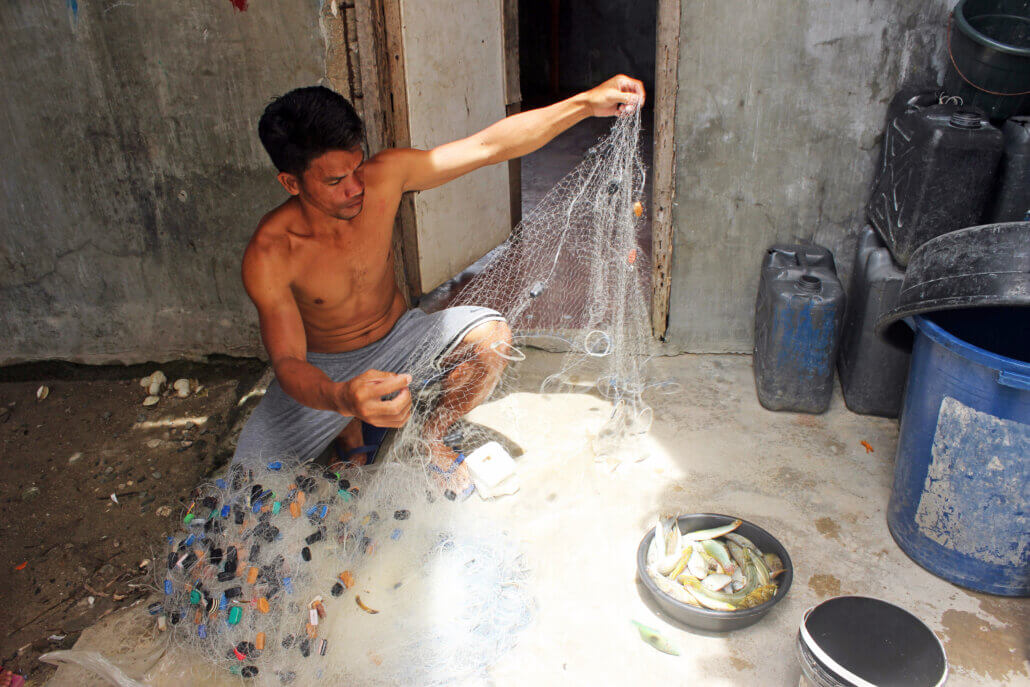
Through the funding of the European Civil Protection and Humanitarian Aid Operations (ECHO), the Immediate and Comprehensive Response for Communities Affected by Typhoon Rai implemented by Action Against Hunger in Bohol provided aid and support in the aftermath of the calamity. Since the residents’ livelihoods were most impacted, the ECHO-funded Typhoon Odette Emergency Response provided interventions to help the fishing community rebuild their main source of living.
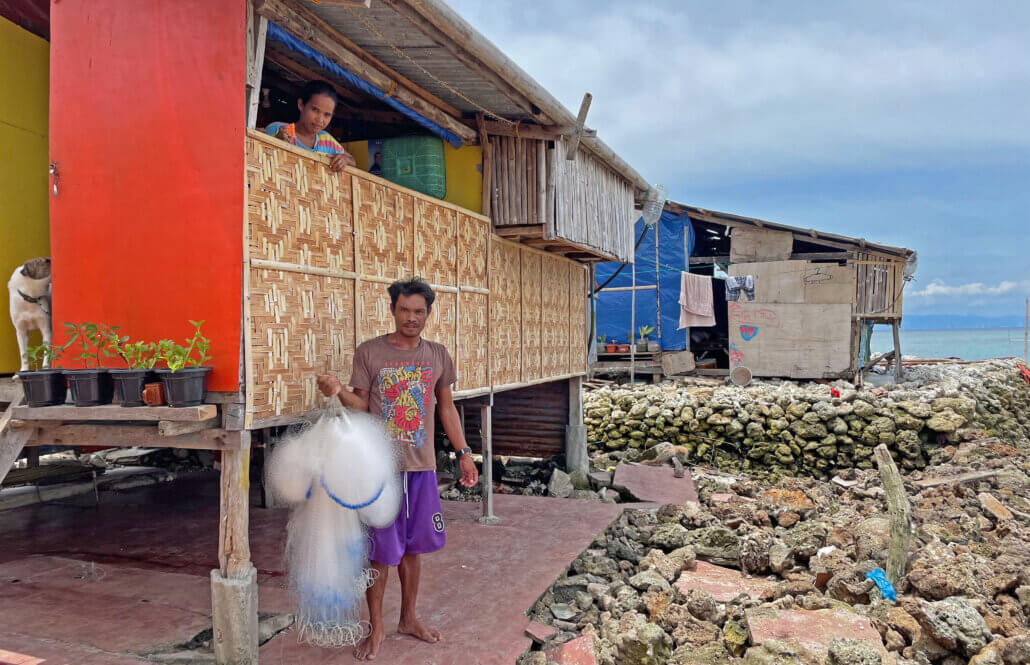
Jose Cabarce, a fisherfolk, shows his new fish net he bought using the cash assistance. His wife, Evelyn Cabarce, is inside their home which is right behind Jose.
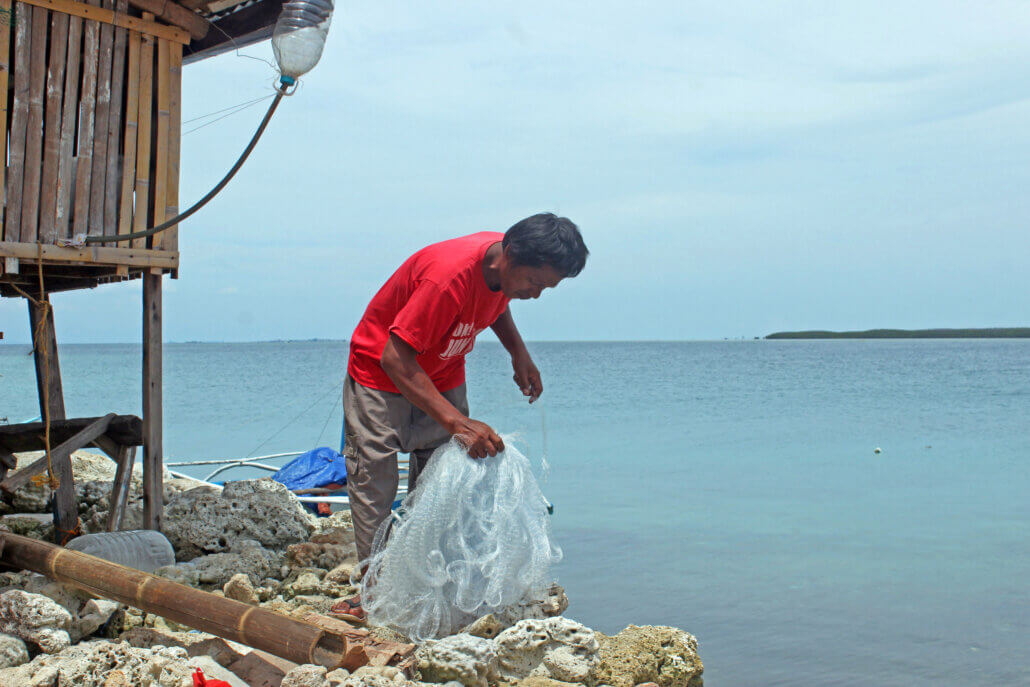
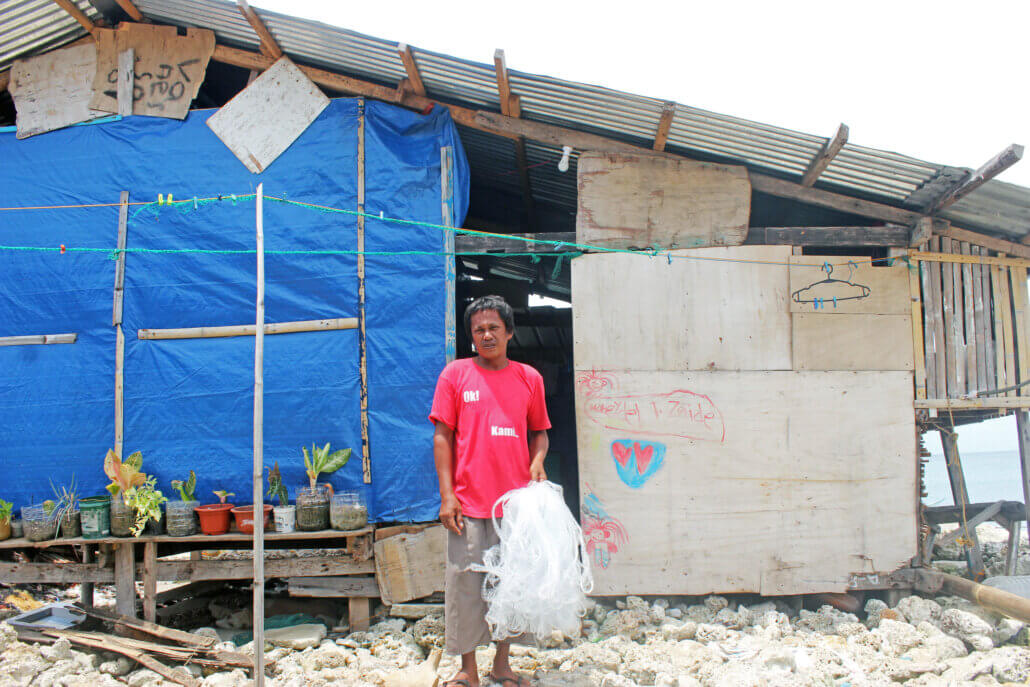
Reynaldo Zaide lost his newborn daughter during the typhoon. The name of the baby who died is seen written on the exterior wall of the family’s house. Reynaldo lives with his wife, Lavinia, and their two children: a 15-year-old boy and an 8-year-old girl. He received cash assistance for livelihood as well which he used to buy a new fishing net.
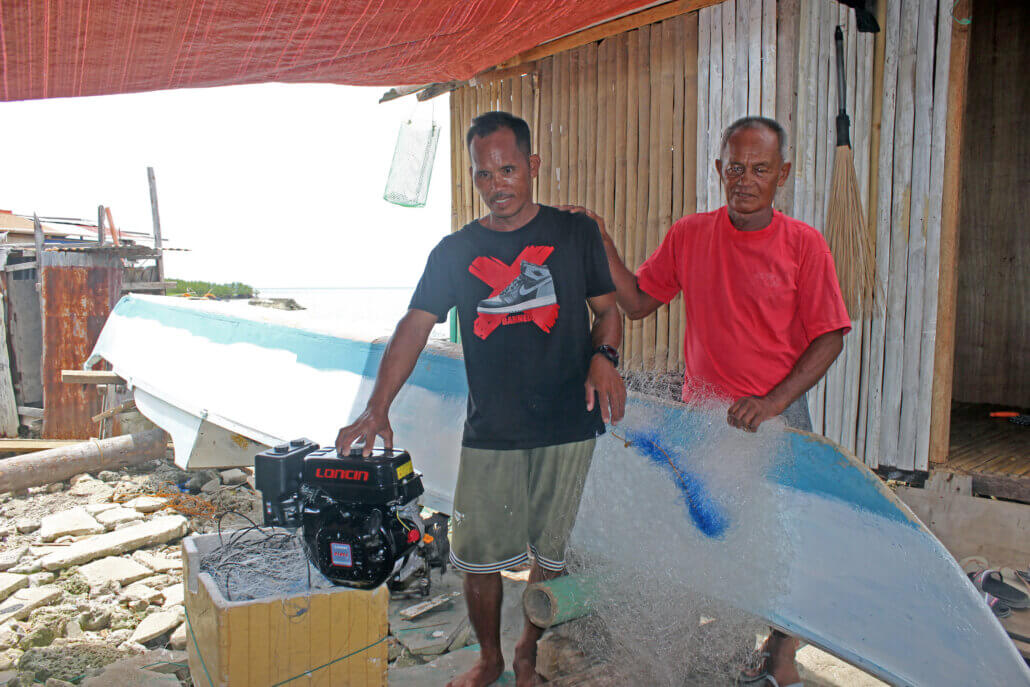
Father and son Lorenzo and Eric Beltran take turns in using the new fishing net and motor machine for their boat which they bought through the cash assistance provided by the project. They live together in a small house built just a few inches from the seawater.
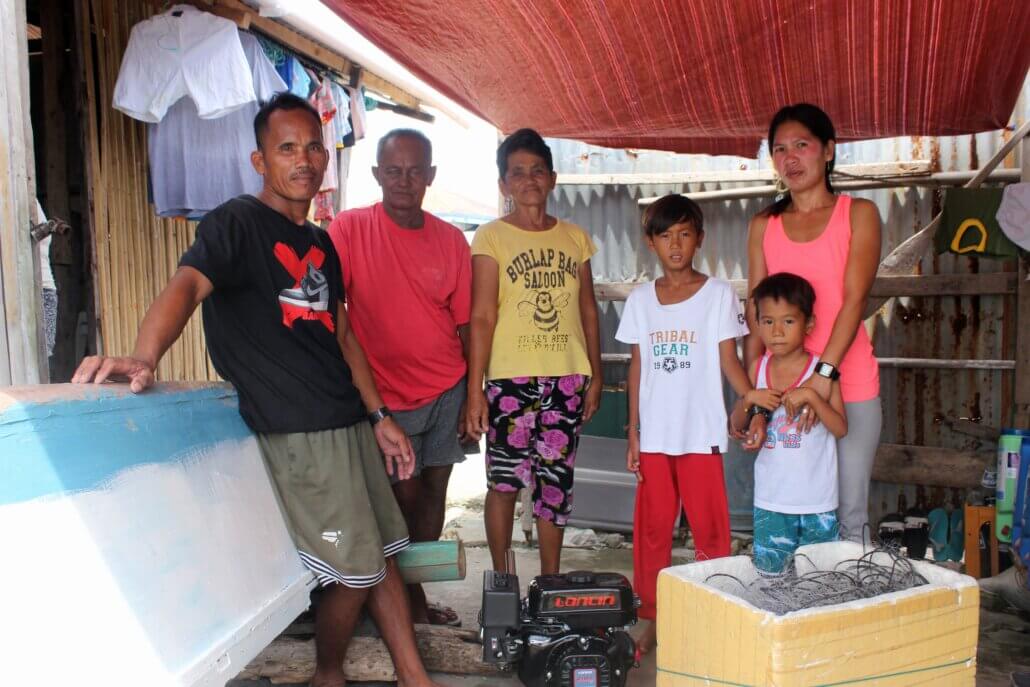
Eric and Lorenzo with the rest of the Beltran family members.
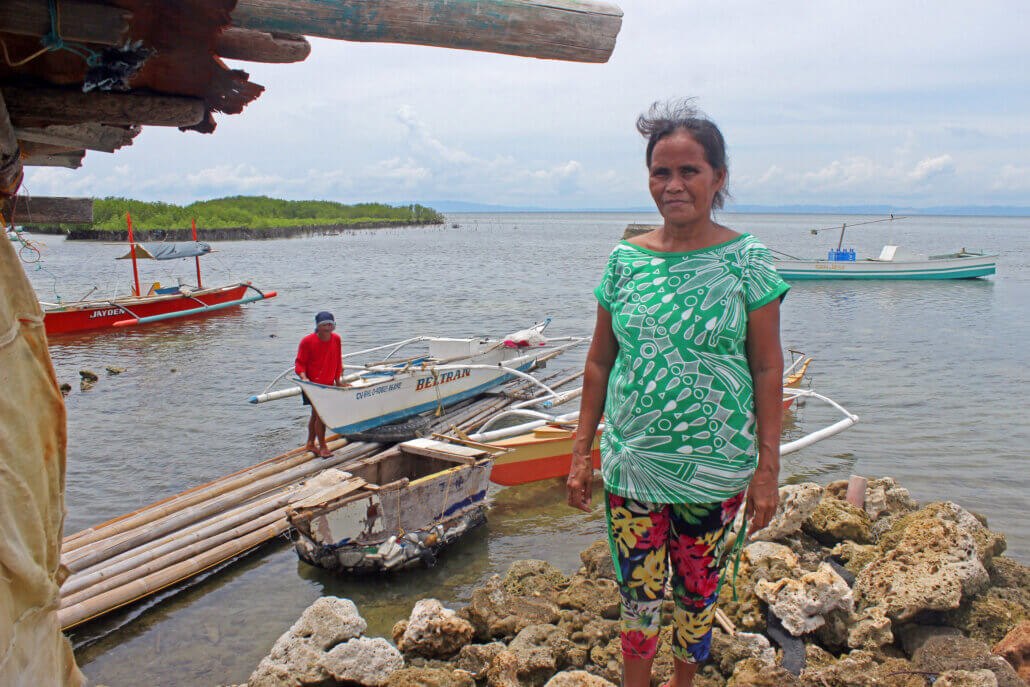
Estrellita shows her husband, Binerando, getting ready for another fishing trip. Binerando is preparing the boat they managed to acquire through the livelihood cash assistance.
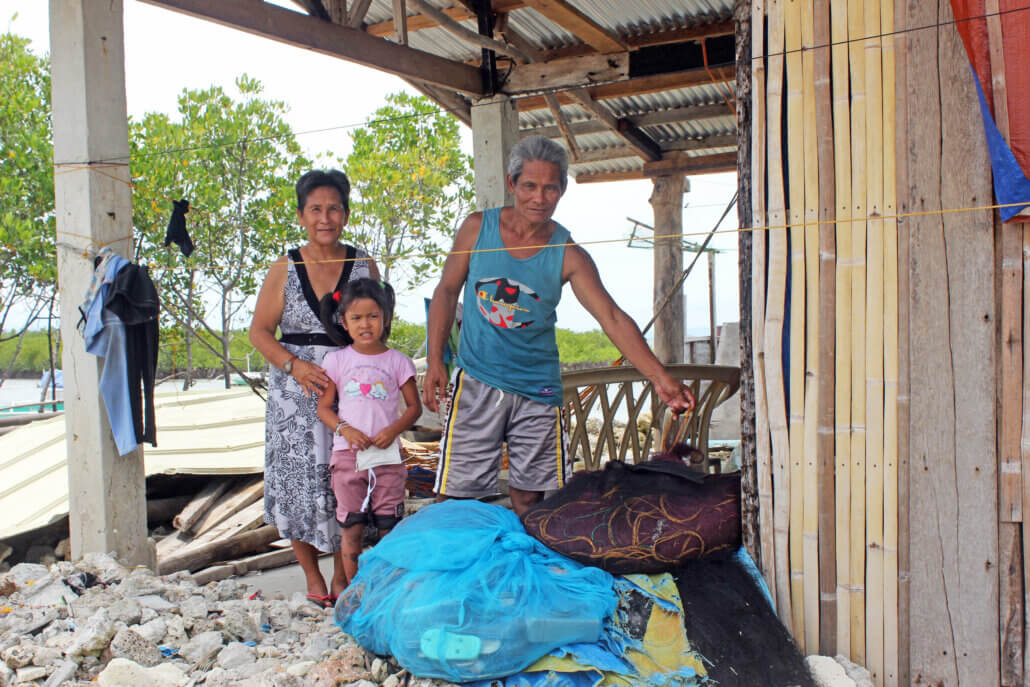
Grandparents Reinaldo and Feliza Manas, with their granddaughter, show the fishing net they just bought. Reinaldo is a fisherman who works to provide food for her sick wife and their granddaughter who lives with them. Surrounding them are some of the remaining debris of their damaged home.
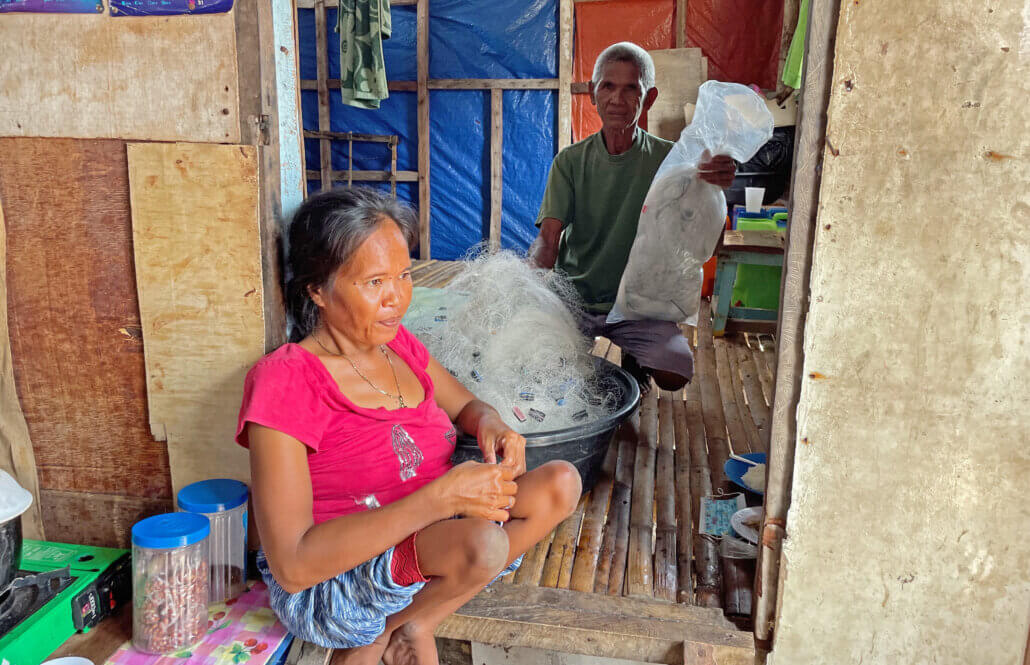
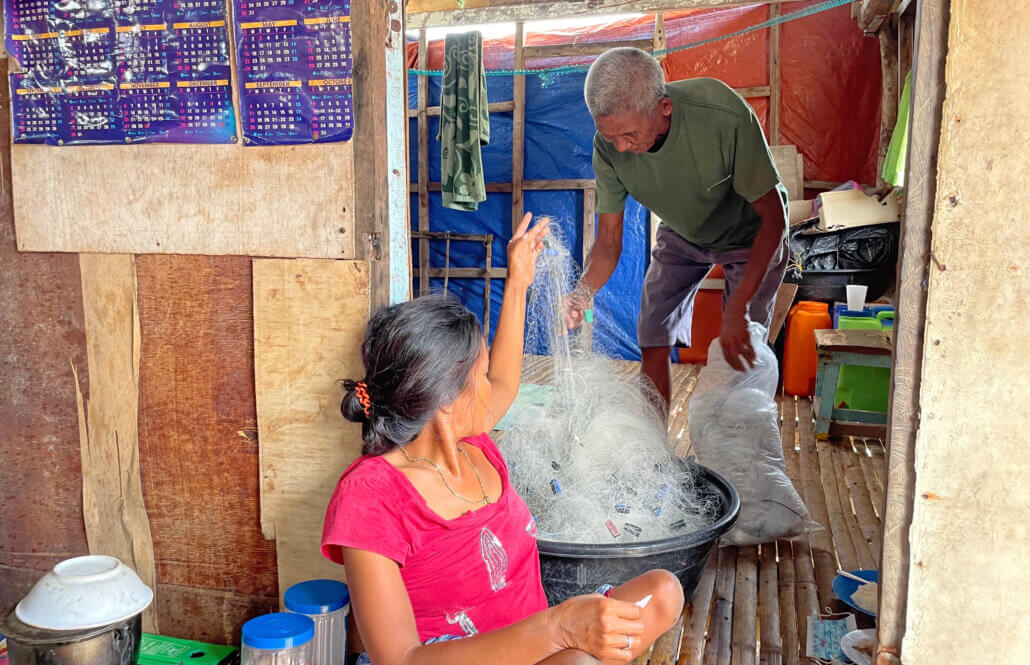
Fernando, 64, and Analiza, 33, are a couple with two kids in grade school. With Analiza having Polio, Fernando is the primary caregiver and provider of the family. Thanks to the cash assistance, the family was able to buy new fishing gear that helped them restart their fishing livelihood after Typhoon Odette.
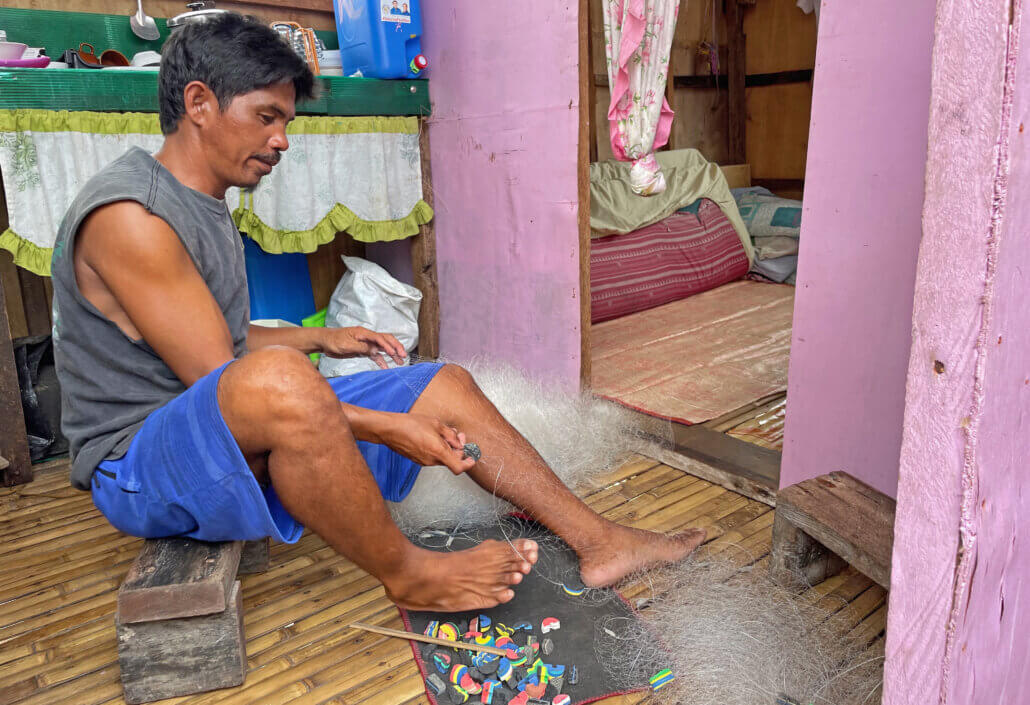
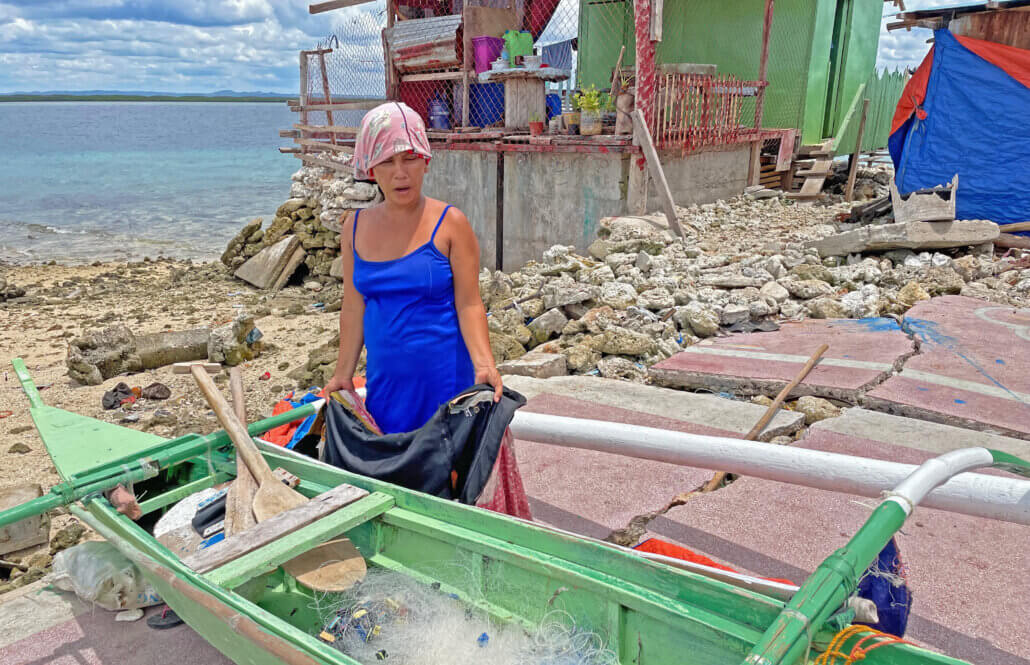 The ECHO-funded Typhoon Odette Response provided cash assistance which residents used to rebuild their livelihoods. While some residents used the assistance to purchase fishing gears and other equipment, others used it as a start-up capital for a sari-sari or small retail store.
The ECHO-funded Typhoon Odette Response provided cash assistance which residents used to rebuild their livelihoods. While some residents used the assistance to purchase fishing gears and other equipment, others used it as a start-up capital for a sari-sari or small retail store.
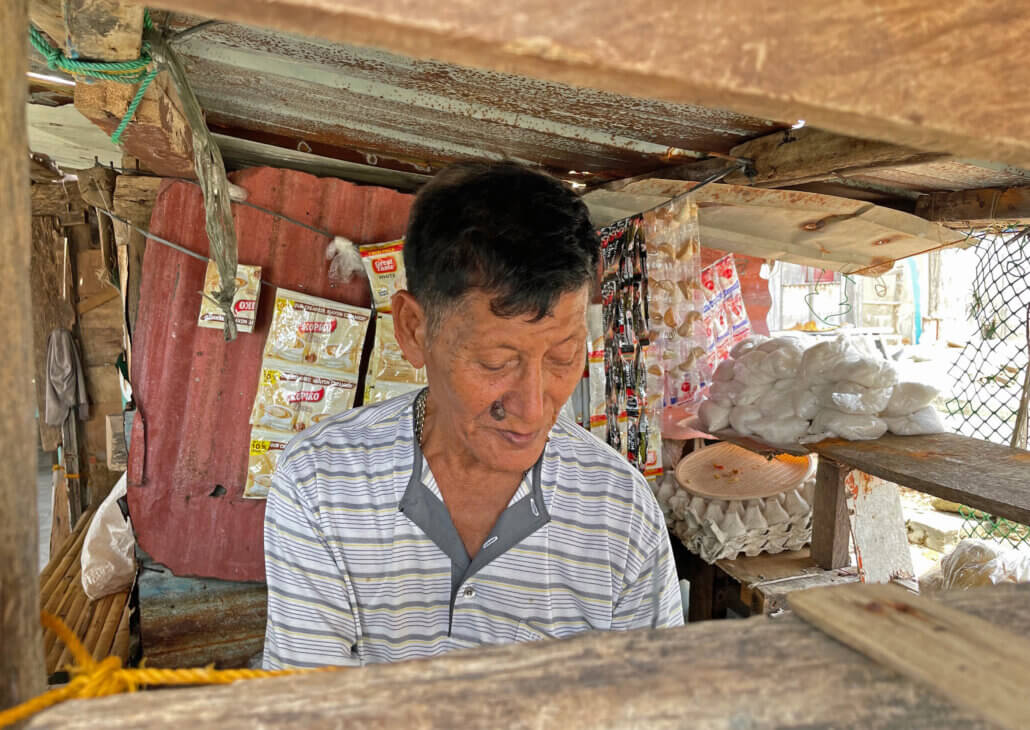
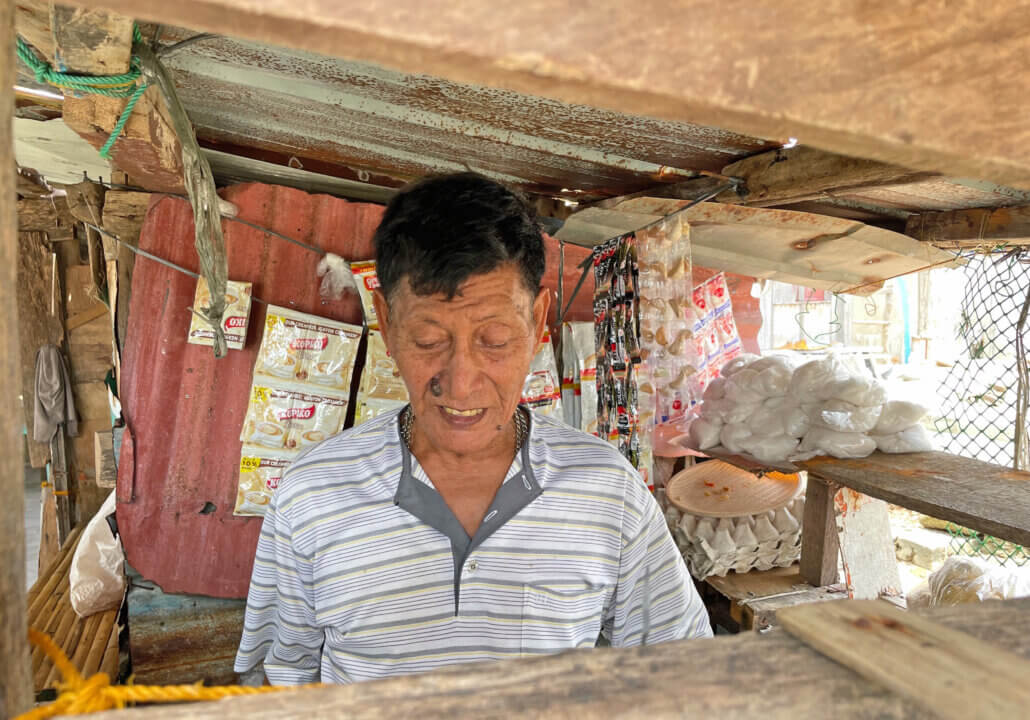
Eusevio Macaraya shows his small sari-sari store inside a makeshift shelter made of materials recycled from the remains of typhoon Odette. Eusevio proudly shares how his small store is now the new place for the neighborhood, especially fishermen, to gather for coffee early at dawn or late at dusk. The new ‘Ubay Island Cafe’ owner is a 64-year-old widower who lives alone. His four children have left the island a few years ago for marriage.
Aside from the cash assistance for livelihood, the Action Against Hunger team also provided another set of cash assistance to some members of the community for food supplies. They also provided Water, Sanitation and Hygiene kits.
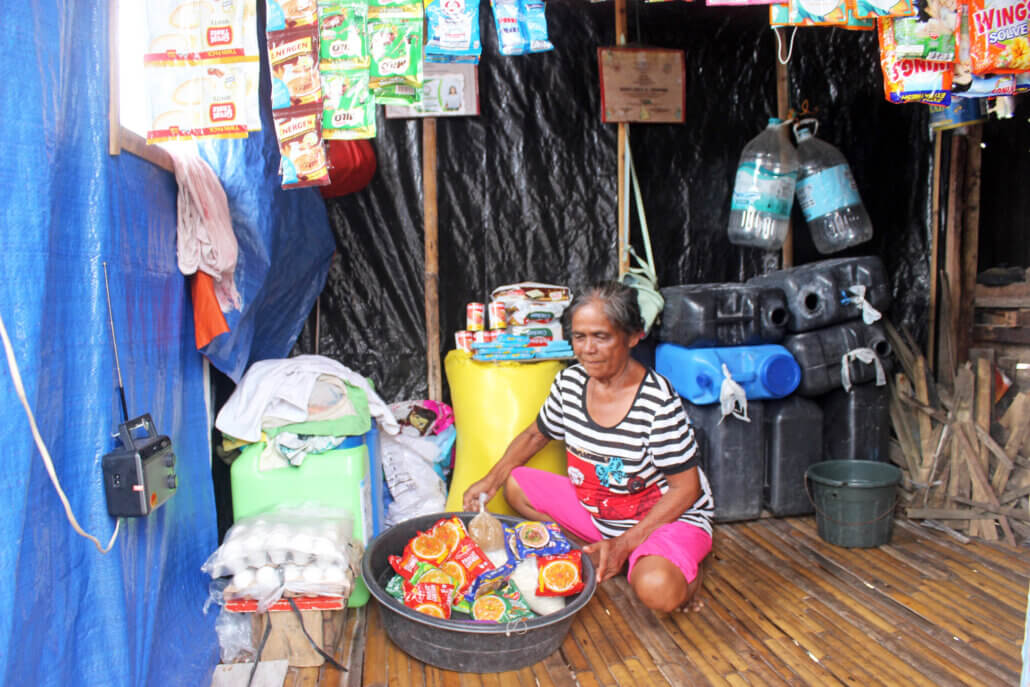
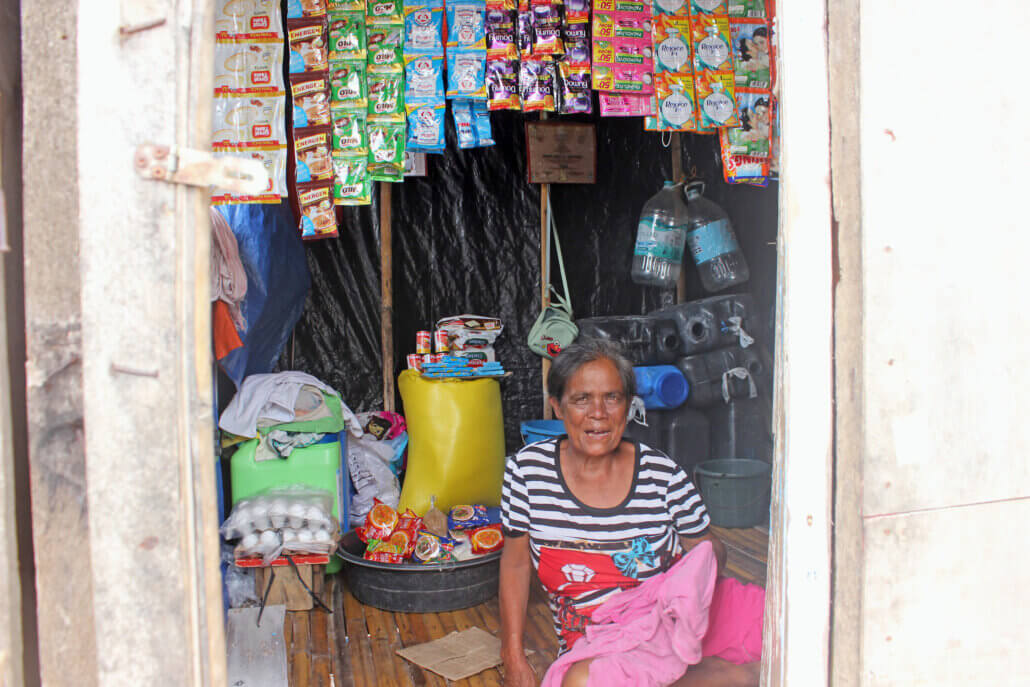
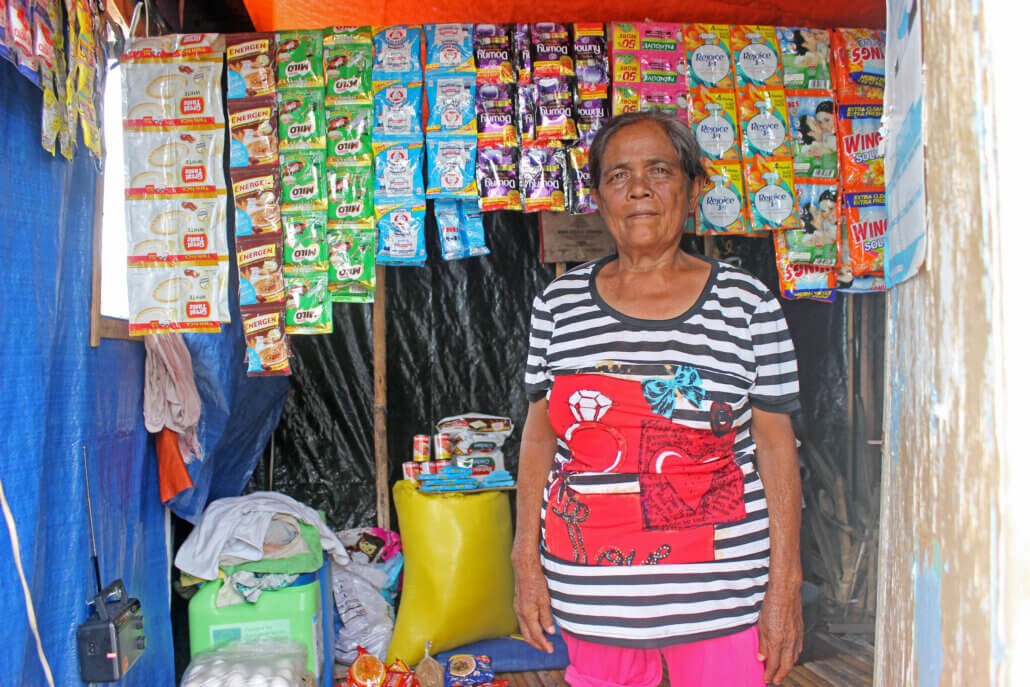
Estrellita Anavieza, 58, is a widow who currently lives on the island with her teenage daughter. She also received livelihood cash assistance for her store’s capital.
Aside from the cash assistance for livelihood, the Typhoon Odette Response through Action Against Hunger also provided another set of cash assistance for food supplies. During the initial stages of the intervention WASH or water, sanitation, & hygiene kits were also given to the affected residents.
The Immediate and Comprehensive Response for Communities Affected by Typhoon Rai (Odette) is funded by the European Civil Protection and Humanitarian Aid Operations (ECHO) and jointly implemented by CARE Philippines, ACCORD Incorporated, Action Against Hunger Philippines, National Rural Women Coalition (PKKK) and Plan International in Dinagat Islands, Palawan, Southern Leyte, Bohol, Negros Occidental, and Cebu, in the Philippines.
Written by Donna Ocmeja | Photos by Donna Ocmeja for Action Against Hunger


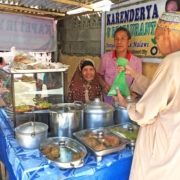
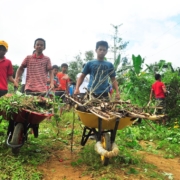
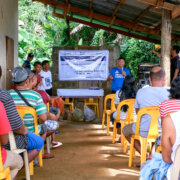
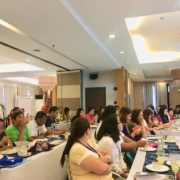
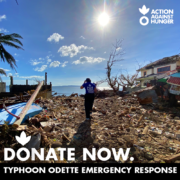
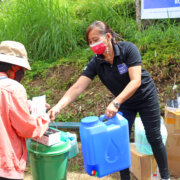
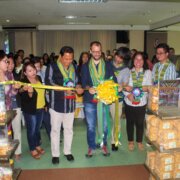



Leave a Reply
Want to join the discussion?Feel free to contribute!